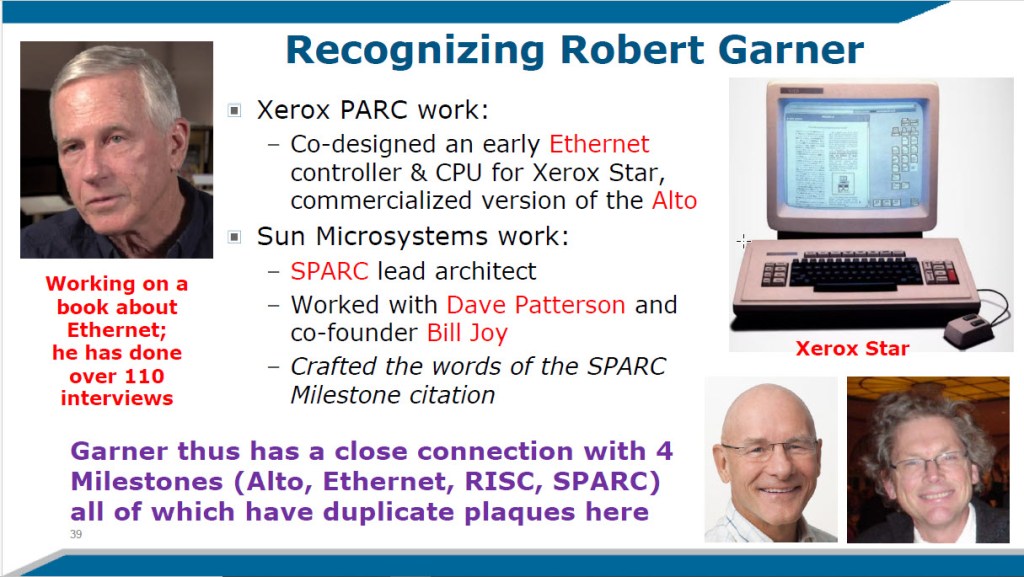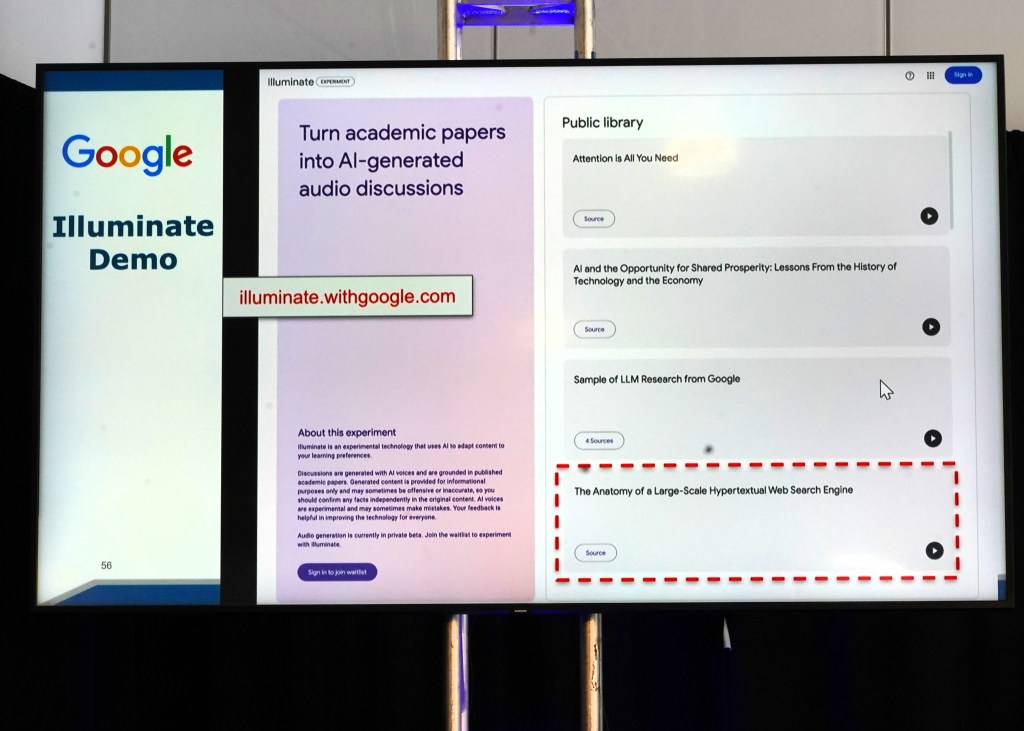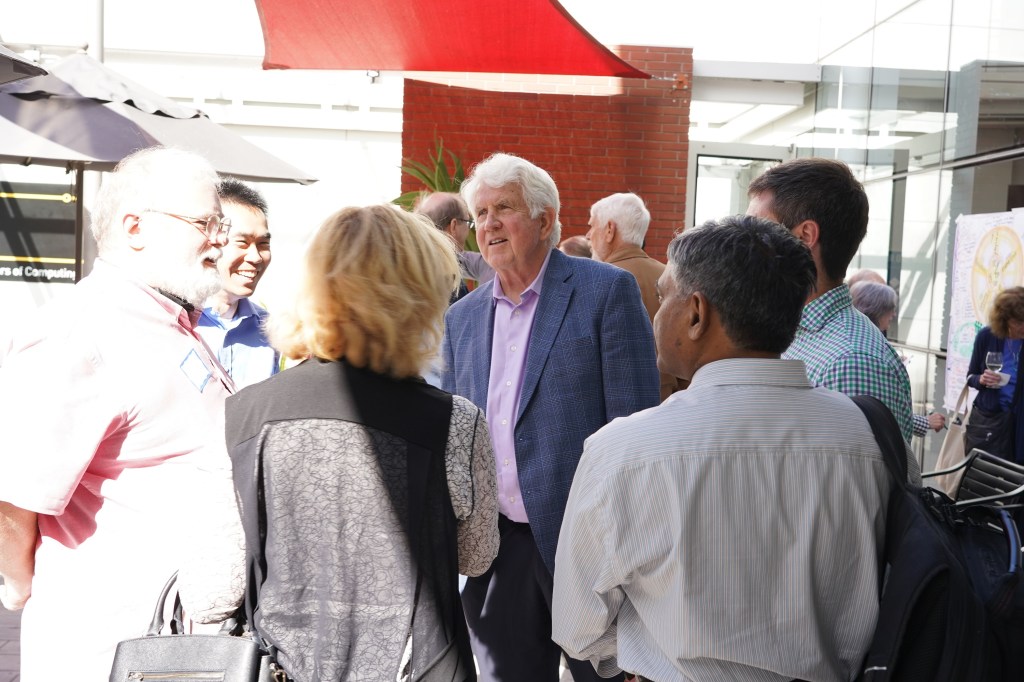The last of the three events to honor six IEEE Milestones and the 50th Anniversary of the Internet took place on Monday May 20th, 2024 at the Computer History Museum (CHM) in Mountain View, CA.
Titled “IEEE Milestone Celebration: TCP, 802 Standards, and Google” the event added three new plaques to the CHM’s Front Wall IEEE Milestone Plaques. These are duplicate plaques as the originals are placed at a location related to the work that led to the Milestone Award. In addition to the three mentioned, the three Milestones awarded to SRI PARC on Friday, May 17 were also added to the CHM Front Wall, bringing the total number to 26!
The welcome and introductory comments included Brian Berg, Mei Lin Fong, Joseph Wei, and Karen Galuchie.


Wei pointed out that Region 6 is one of 10 geographic regions of IEEE and covers the Western U.S. states. The IEEE Regions offer educational and networking opportunities, and alert their members to forthcoming conferences and calls for papers. The Regions also look to support local student members. Region 6 has 38 of the 256 Milestones (as of May 20, 2024) within its geography.
Galuchie outlined the Vision, Mission and Values of the IEEE Foundation as the “philanthropic partner of IEEE…” The IEEE Foundation was a key sponsor of all three events described in these posts.
Berg then discussed the context and history of the IEEE Milestone Program. Beyond the six Milestones dedicated during these events, Brian talked about several of the other Milestones from the local area that were dedicated previously. As the key contributors to some of these Milestones were in the audience, Brian had them stand up while he described what they had done.
Of personal significance to me, Brian included the Milestone for the Dialog Online Search System, 1966. As many of you know, I was employed by Dialog from 1979 to 1993, which served as the foundation of my career.


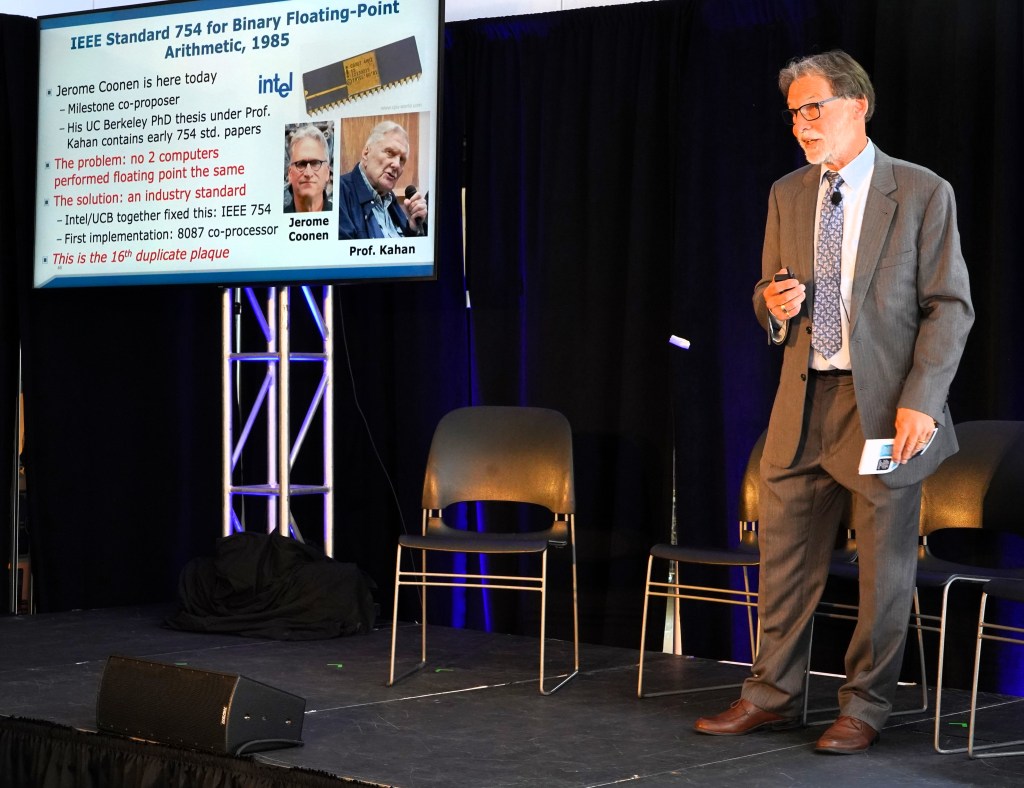

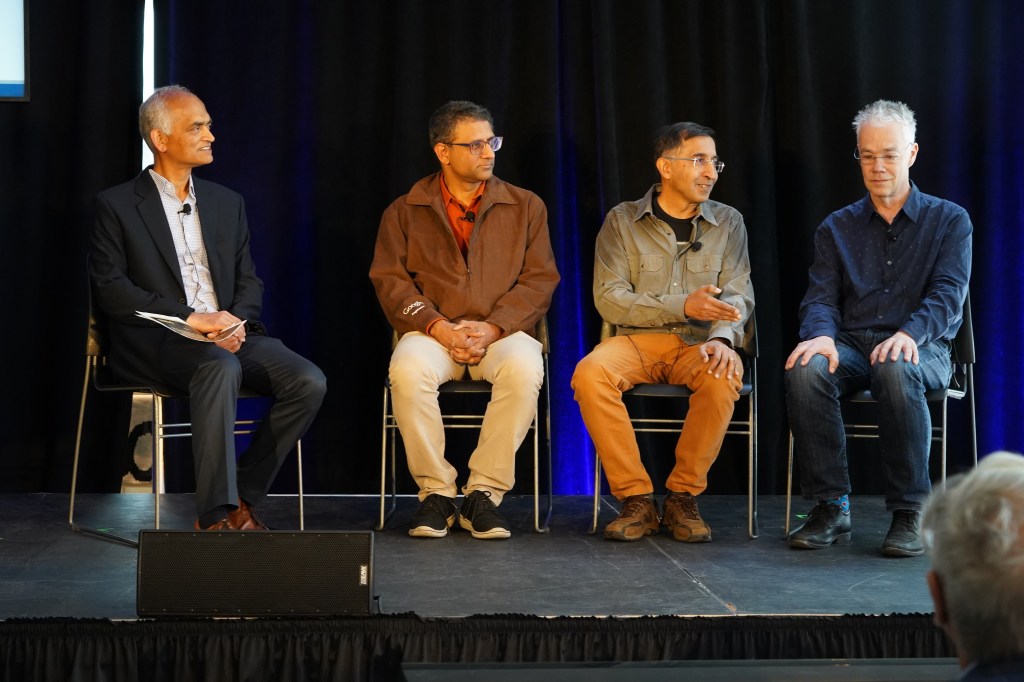
The most anticipated presentation was by a panel of senior Google executives – “How Google’s PageRank Algorithm Shaped Our Access to Digital Content.” Targeted to a sophisticated and technical audience, the talk covered the foundation of what PageRank was based on, including giving attribution to the early work of Eugene Garfield in creating the Science Citation Index. As someone who worked in and with libraries for my career, it was interesting to hear Google senior team members be so direct in giving credit to a well-known library reference publisher.
The Google Milestone documentation includes this quote – “In 1972, Eugene Garfield proposed that citations of a given research article can be viewed as an endorsement of that article, and that appropriately normalized citation counts can be used to quantify the impact of individual papers, entire journals, as well as researchers and institutions.” The bibliography cites Garfield’s paper – “Citation analysis as a tool in journal evaluation,” published in the November 1972 issue of Science.
PageRank is still used today in the Google search engine. However, it is supplemented by a range of additional approaches to search to give better results. According to the speakers, Google is concerned with how to combat misinformation, disinformation, and use of the platform for propaganda. There are Google teams using various approaches to fight this fight every day.
The panel demonstrated Google’s interest in bringing high quality information to their users by introducing Illuminate. This is an AI-based tool that provides an entry point to scholarly peer-reviewed literature by turning the article into a discussion where the interviewer is talking to the expert. The key points of the article are turned into responses from the interviewee that are discernible by any reader.
The afternoon continued with presentations to honor the TCP and 802 Milestones, as well as the three Milestones dedicated the previous Friday at SRI PARC, as shown below.

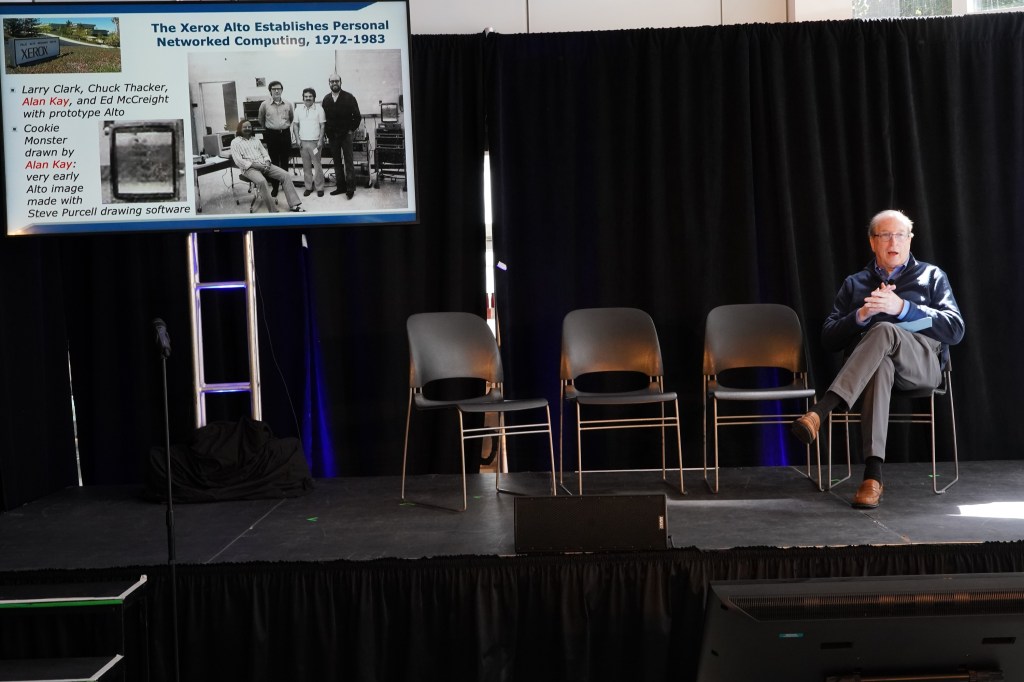
1972-1983; John Shoch, Office Systems Division President (retired), Xerox PARC
Bob Metcalfe, co-inventor of Ethernet at Xerox PARC, and Frank Kuo, a key developer of ALOHAnet at the University of Hawaii, had a lively discussion about the history and relationships between these two early networking systems. It was obvious Kuo and Metcalfe knew each other well and the audience enjoyed their conversation. The Ethernet Milestone was just dedicated, while the ALOHAnet Milestone – “Demonstration of the ALOHA Packet Radio Data Network, 1971” is #207 dedicated in October of 2020. (Note – Xerox PARC is now SRI PARC as of April 2023.)



To celebrate the dedication of the Milestone: “Transmission Control Protocol (TCP) Enables the Internet, 1974,” Sally Wentworth (Managing Director, The Internet Society) and Vint Cerf (Vice President, Chief Internet Evangelist, Google) had a discussion of the 1974 TCP Paper as authored by Cerf and Robert Kahn. The session was titled – “With the Internet Society @ 50th Anniversary of the Internet.” For more on the 50th Anniversary of the Internet – see Part 2

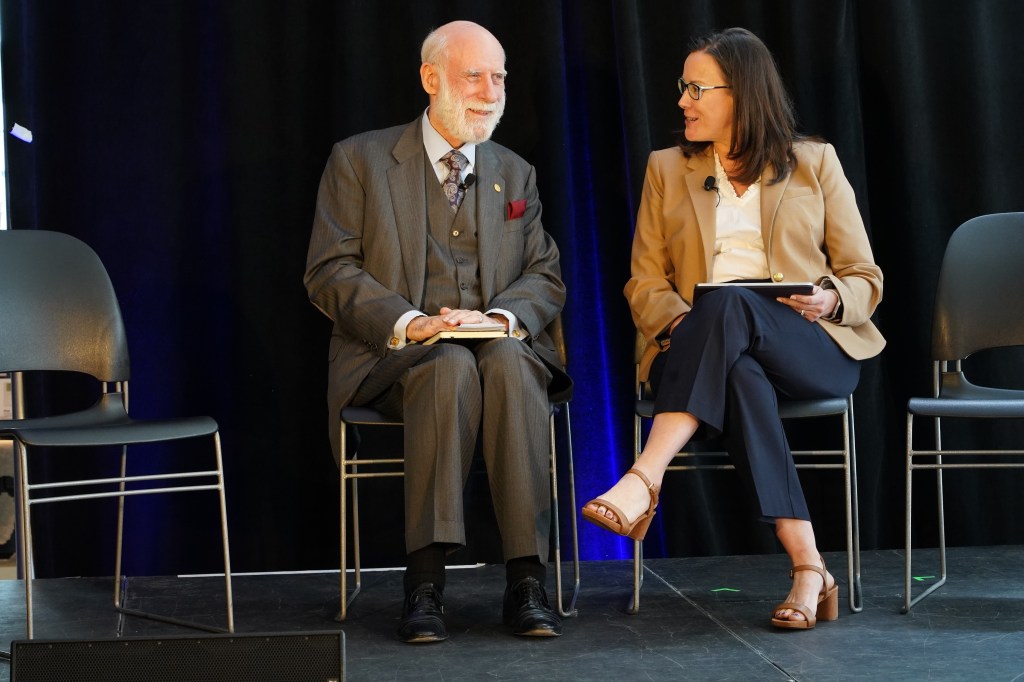

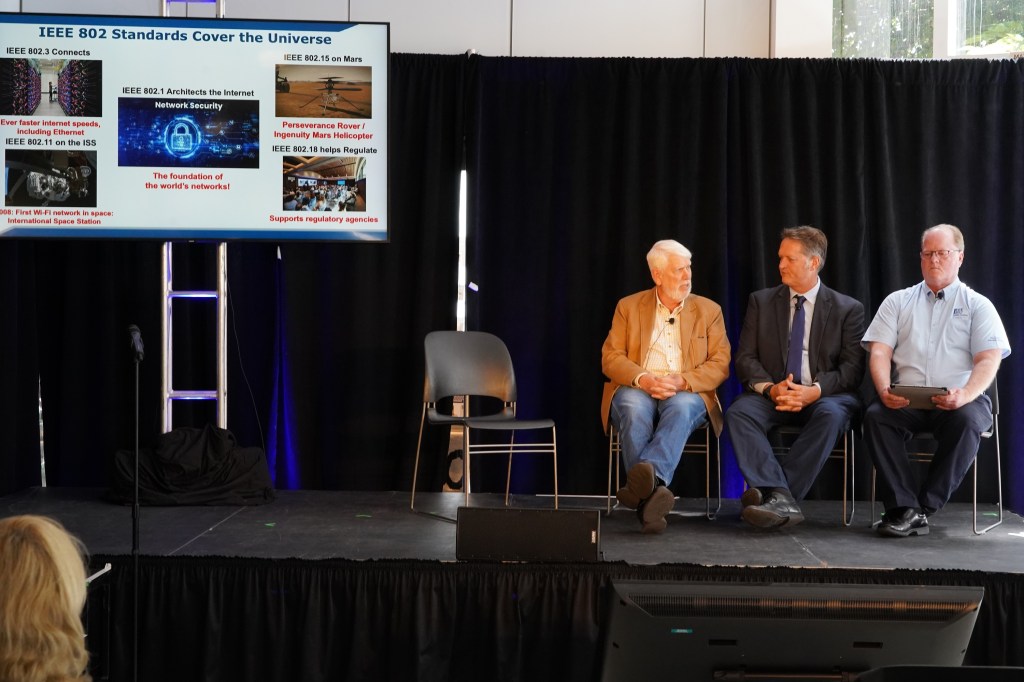
Geoff Thompson, IEEE 802 Executive Committee Emeritus; 802 Milestone proposer; James Gilb, IEEE 802 Executive Committee Chair; Clint Powell, IEEE 802.15 Working Group Chair

Marc Weber, Internet Historian & Dan’l Lewin, President (CHM)
The concluding remarks were made by Mei Lin Fung (Chair, i50 IEEE; Co-Founder with Vint Cerf, People Centered Internet) and Jascha Stein (Executive Chair, People Centered Internet), Timothy Lee (President-Elect, IEEE-USA) and Brian Berg. From there the group went to the Computer History Museum’s Front Wall of 26 IEEE Milestone Plaques.



Here are the six new IEEE Milestones Plaques:




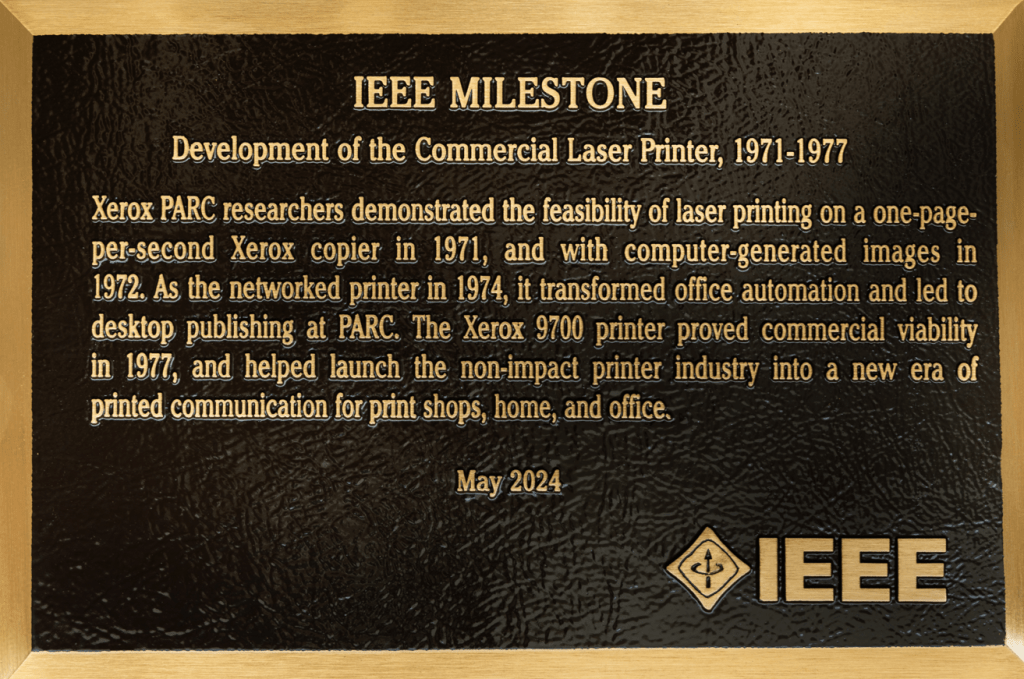
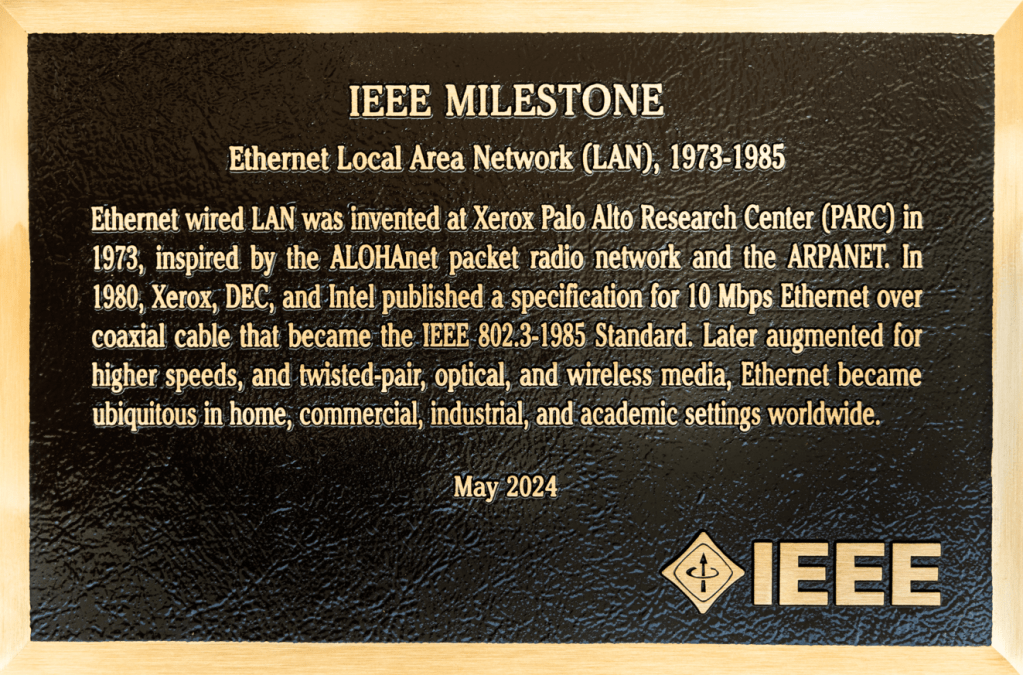
Acknowledgement: A big thank you to Brian Berg who invited me to attend and photograph these events. Brian also served as an expert editor in helping to refine these posts.
Plaque images courtesy of the Engineering and Technology History Wiki (ethw.org). All other photos by George Plosker.



